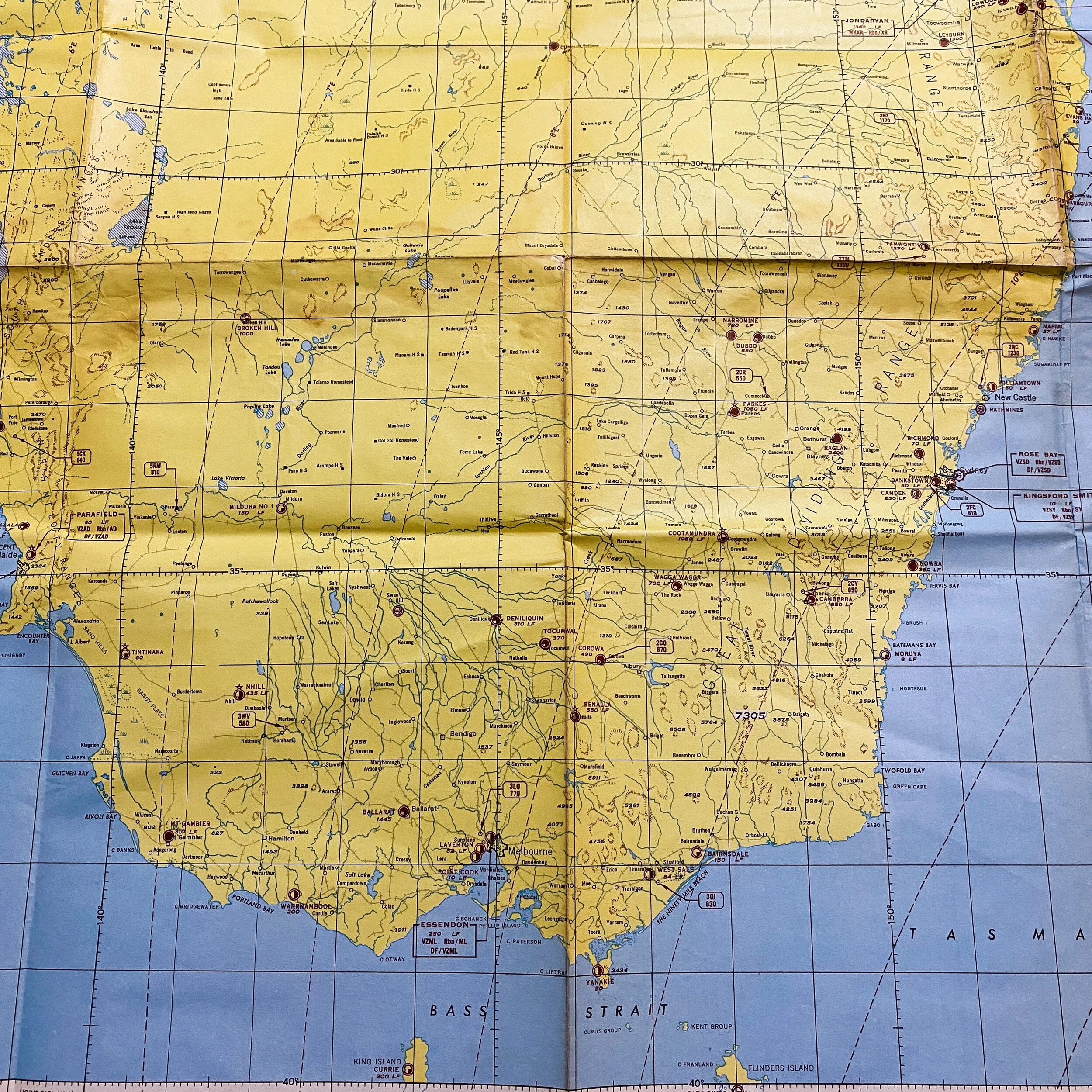WWII 90th Bomb Group Jolly Roger B24 Range Navigator East Australia Map
















WWII 90th Bomb Group Jolly Roger B24 Range Navigator East Australia Map
This is an extremely rare marked RESTRICTED US Army Air Forces 'Long Range Air Navigation Chart' combat used navigation and bombardment map that was used by the navigator on a B-24M bomber during the Pacific War. These long range maps were carried by the navigator for pre-flight briefings and carried on the B-24M itself as they made their approach to the target. Very few of these range maps used by the navigators exist, especially ones showing the air, naval and military bases of Allied forces Australia where the Jolly Rodgers were initially based out of.
This map was printed by the US war department map and measures a large 50 inches tall x 40 inches wide and in very sturdy condition. This would have been very helpful and used as a visual marker for the navigator and bombardier to better identify their approach to the target.
*This map wouldn’t have been a bombing target map as it is marked East Australia, however, it was a take off and landing map used to guide the pilots to and back to their air base during their bombing runs on close Japanese occupied islands.
The Jolly Rogers -5th Air Force - 90th Bomb Group - Heavy:
Formed in early 1942, the 90th Bombardment Group, part of the Fifth Air Force of the United States Army Air forces, operated the Consolidated B-24 Liberator heavy bomber in the Southwest Pacific Theater, initially from Queensland, Australia. The group was awarded two Distinguished Unit Citations and the Philippine Presidential Unit Citation for its extensive and meritorious combat service.
The 90th Bomb Group attacked enemy airfields, troop concentrations, ground installations and shipping in New Guinea, the Bismarck Archipelago, Palau and the southern Philippines. The group was awarded a Distinguished Unit Citation for operations in Papua. During 1944, the 90th supported the New Guinea Campaign through the end of June as well as the Philippines and supported ground forces on Luzon, attacked industrial targets on Formosa, and bombed railways, airfields, and harbor facilities. Shortly before the end of the war in the Pacific, the 90th moved to Okinawa, from which it would be able to strike the Japanese home islands.
Jolly Rogers in Australia:
The group moved to Willow Run Airport, Michigan for conversion training on newly manufactured Ford Liberators. Assigned to VII Bomber Command with B-24Ds, The unit moved to Hickam Field, Hawaii in September. The group arrived in northern Queensland, Australia in November 1942 and began bombardment missions under V Bomber Command almost immediately. During the early bombing campaigns of WWII Austria became the central operating base of the Jolly Rodgers planes and pilots. They operated in bases in northern, western, and cereal Australia. As the US and Allied forces began taking islands, the Jolly Rodgers moved their bases to those captured islands as they moved closed to Japan.